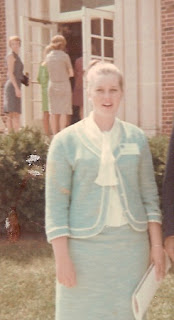Carol:
A Clean, Well-Lighted Place in Prescott
 The weather has disrupted our family. Our satellite dish is covered with ice, so our TV reception has been out since last night. Milo’s morning walk was canceled, and worst of all, so was Megan’s six a.m. flight from Prescott to Denver. She is booked on an afternoon flight, but the weather in Denver is starting to deteriorate and it’s snowing again here. “Wait and see” is the mantra for the day as we put on the coffee, crank up the heat and hang out in the living-room for weather updates
The weather has disrupted our family. Our satellite dish is covered with ice, so our TV reception has been out since last night. Milo’s morning walk was canceled, and worst of all, so was Megan’s six a.m. flight from Prescott to Denver. She is booked on an afternoon flight, but the weather in Denver is starting to deteriorate and it’s snowing again here. “Wait and see” is the mantra for the day as we put on the coffee, crank up the heat and hang out in the living-room for weather updates
When I woke up this morning, my first thought was about Megan’s travel plans. My second thought was about some folks I know who must be pretty cold, wet and uncomfortable right now. Bad weather doesn’t disrupt their TV reception. Most of them don’t have electricity. It doesn’t interfere with their travel plans. Most of them don’t have transportation. Luckily, they can drink their coffee and hang out in the heated living-room of Quixote’s Garage.
Thousands of tourists visit Prescott each year, with its yesteryear charm and reputation as “Everybody’s Home Town.” Unfortunately, that friendliness doesn’t always extend to the homeless people who also come here to escape the summer heat of Phoenix, look for work, or seek military benefits at the local VA hospital. Community groups provide meals, but shelters have limited capacities and public transportation is almost non-existent. Increasingly, local business owners and the police have made the downtown Courthouse area and local parks inhospitable for anyone who appears to be loitering. No hanging out allowed.
That’s where Quixote’s Garage comes in. The Garage is exactly that, a former business with huge roll-up commercial-grade doors that go up in the summer to let out the heat and down in the winter to keep out the cold. Modeled after the principles and vision of Dorothy Day, the Catholic Worker Movement, and hospitality houses for people “at the margins,” Quixote’s Garage is “Everybody’s Living-room,” where all are welcome, homeless or not, jobless or not. A big sign out front announces “Loitering Allowed,” and the space inside is laid-back, friendly and safe. That safe part is important, more important than the heat, hot coffee, books and games, or comfortable couches.
Quixote’s Garage is a drug-free, alcohol-free, hassle-free, fragrance-free, hostility-free zone. It is NOT a Free Speech zone: no talk about drugs and alcohol, and no discussion of controversial issues (religion and politics) that might disrupt the atmosphere of safety and respect. Spend time at Quixote’s Garage, whether as guest or volunteer, and it also becomes a judgment-free zone.
Divisive preconceptions about “lazy people who don’t want to work” and anonymous statistics about homeless vets, the mentally ill or vagrancy don’t stand up well against the stories and faces of individual people, of real human beings. Listen in, and you’ll hear funny work and travel anecdotes, re-hashes of chess or rummy strategies, newcomer advice on where to find hot food, the best campsites, day work, or how to maneuver the red tape at the VA; and, you’ll hear lots of good-natured teasing. Join in, and you’ll get intelligent, interesting discussion of history, philosophy, and okay a little politics. You won’t hear foul language, cruel gossip, or whining…that gets teased out of people really fast.
It is snowing again with a hint of blue to the north-west. Megan is curling her hair in the bathroom in hopes that the storm will abate in time for that afternoon flight. I’m thinking about my friends. Do they have enough AAA batteries for their flashlights, garbage can liners to protect their gear, a dry change of socks, and transportation to get through the snow and muck to the warmth and safety of a clean, well-lighted place called Quixote’s Garage.
“We have all known the long loneliness, and we have found that the answer is community” (Dorothy Day).
 The weather has disrupted our family. Our satellite dish is covered with ice, so our TV reception has been out since last night. Milo’s morning walk was canceled, and worst of all, so was Megan’s six a.m. flight from Prescott to Denver. She is booked on an afternoon flight, but the weather in Denver is starting to deteriorate and it’s snowing again here. “Wait and see” is the mantra for the day as we put on the coffee, crank up the heat and hang out in the living-room for weather updates
The weather has disrupted our family. Our satellite dish is covered with ice, so our TV reception has been out since last night. Milo’s morning walk was canceled, and worst of all, so was Megan’s six a.m. flight from Prescott to Denver. She is booked on an afternoon flight, but the weather in Denver is starting to deteriorate and it’s snowing again here. “Wait and see” is the mantra for the day as we put on the coffee, crank up the heat and hang out in the living-room for weather updates When I woke up this morning, my first thought was about Megan’s travel plans. My second thought was about some folks I know who must be pretty cold, wet and uncomfortable right now. Bad weather doesn’t disrupt their TV reception. Most of them don’t have electricity. It doesn’t interfere with their travel plans. Most of them don’t have transportation. Luckily, they can drink their coffee and hang out in the heated living-room of Quixote’s Garage.
Thousands of tourists visit Prescott each year, with its yesteryear charm and reputation as “Everybody’s Home Town.” Unfortunately, that friendliness doesn’t always extend to the homeless people who also come here to escape the summer heat of Phoenix, look for work, or seek military benefits at the local VA hospital. Community groups provide meals, but shelters have limited capacities and public transportation is almost non-existent. Increasingly, local business owners and the police have made the downtown Courthouse area and local parks inhospitable for anyone who appears to be loitering. No hanging out allowed.
That’s where Quixote’s Garage comes in. The Garage is exactly that, a former business with huge roll-up commercial-grade doors that go up in the summer to let out the heat and down in the winter to keep out the cold. Modeled after the principles and vision of Dorothy Day, the Catholic Worker Movement, and hospitality houses for people “at the margins,” Quixote’s Garage is “Everybody’s Living-room,” where all are welcome, homeless or not, jobless or not. A big sign out front announces “Loitering Allowed,” and the space inside is laid-back, friendly and safe. That safe part is important, more important than the heat, hot coffee, books and games, or comfortable couches.
Quixote’s Garage is a drug-free, alcohol-free, hassle-free, fragrance-free, hostility-free zone. It is NOT a Free Speech zone: no talk about drugs and alcohol, and no discussion of controversial issues (religion and politics) that might disrupt the atmosphere of safety and respect. Spend time at Quixote’s Garage, whether as guest or volunteer, and it also becomes a judgment-free zone.
Divisive preconceptions about “lazy people who don’t want to work” and anonymous statistics about homeless vets, the mentally ill or vagrancy don’t stand up well against the stories and faces of individual people, of real human beings. Listen in, and you’ll hear funny work and travel anecdotes, re-hashes of chess or rummy strategies, newcomer advice on where to find hot food, the best campsites, day work, or how to maneuver the red tape at the VA; and, you’ll hear lots of good-natured teasing. Join in, and you’ll get intelligent, interesting discussion of history, philosophy, and okay a little politics. You won’t hear foul language, cruel gossip, or whining…that gets teased out of people really fast.
It is snowing again with a hint of blue to the north-west. Megan is curling her hair in the bathroom in hopes that the storm will abate in time for that afternoon flight. I’m thinking about my friends. Do they have enough AAA batteries for their flashlights, garbage can liners to protect their gear, a dry change of socks, and transportation to get through the snow and muck to the warmth and safety of a clean, well-lighted place called Quixote’s Garage.
“We have all known the long loneliness, and we have found that the answer is community” (Dorothy Day).
Learn more about Dorothy Day, the Catholic Worker Movement, and the spiritual/philosophical notion of “radical hospitality” at the following sites:
The Catholic Worker Movement Homepage
Baylor University: Christian Reflection—A Series in Faith and Ethics.
Megan:
I haven't written an essay because I am supposed to be in Colorado. Also, I would just like to add that I wasn't curling my hair. I was drying it so I wouldn't get sick in the snow. Geez mom, you make me sound so spoiled. Wah wah, my flight got canceled. Wah wah I might not get to spend New Years in a ski chalet in Vail. Way to remind me what's important.





























